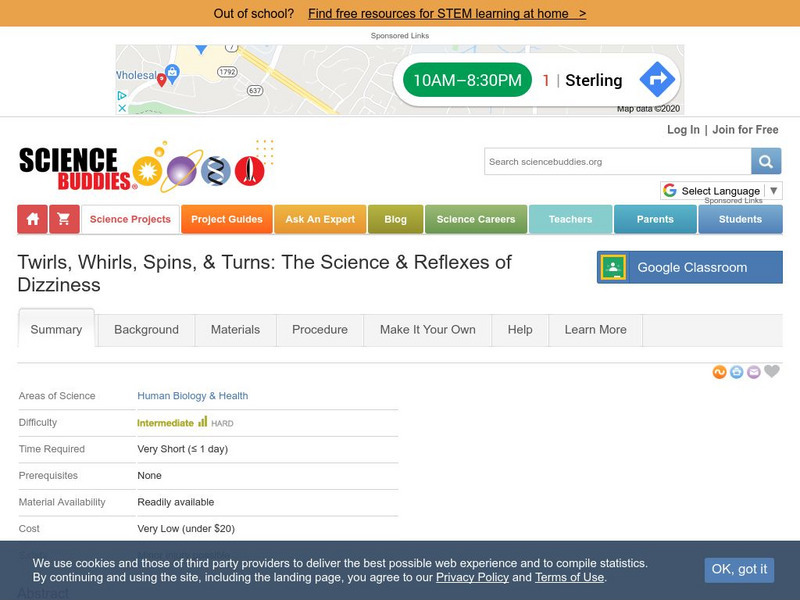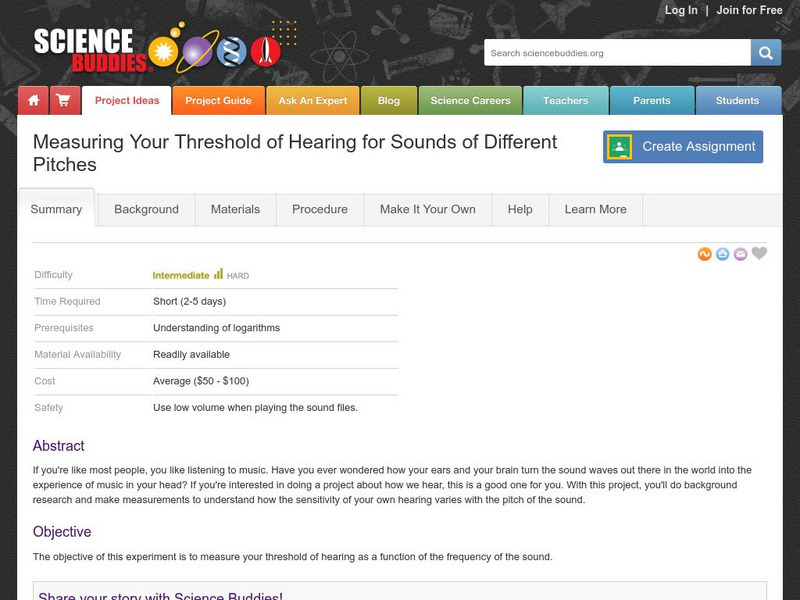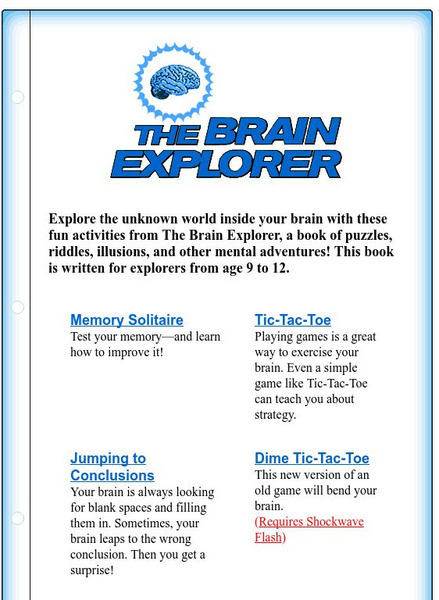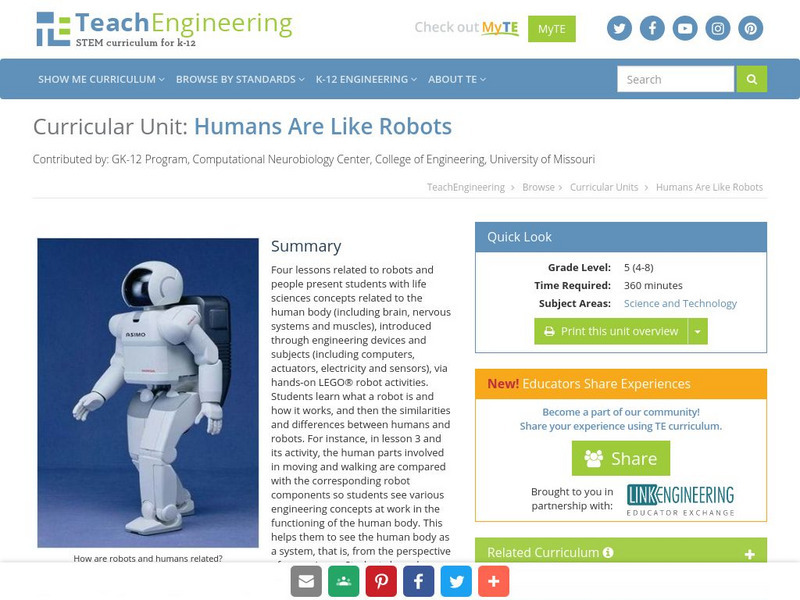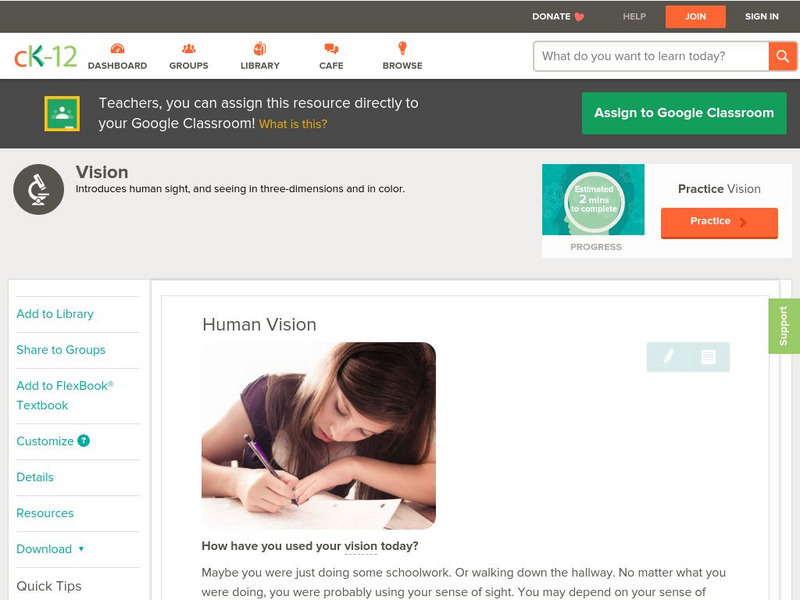Hi, what do you want to do?
Science Buddies
Science Buddies: The Nose Knows Smell but How About Taste?
As if sniffles and clogged sinuses are bad enough, everything seems to taste bland and flavorless when we are sick. Gather up a few volunteers, hit the kitchen, and try this experiment to find out if there is really truth to the idea...
Science Buddies
Science Buddies: Twirls, Whirls, Spins, & Turns: Reflexes & Dizziness
Tilt-A-Whirls, Merry-Go-Rounds, Spinning Tea Cups. Just the thought of these rides is enough to make someone dizzy, or queasy. Learn about spins, turns, and the mixed signals that fire in our brains when the sensation of dizziness takes...
Science Buddies
Science Buddies: Measuring Your Threshold of Hearing
How your ears and your brain turn the sound waves out there in the world into the experience of music in your head, remains a mystery to many, but yet we all experience and even enjoy sounds and music. If you're interested in doing a...
Science Buddies
Science Buddies: Think Fast: Do Video Game Players Have Faster Reaction Time
Are you an avid video game player? Do you think this helps you have fast reaction times? This Science Buddies science project lays out an experiment to help you test your hypothesis. The Science Buddies project ideas are set up...
CommonLit
Common Lit: Text Sets: Psychology and the Mind
The mind has fascinated and mystified humans for millennia. Delve into the science behind the brain with these works on philosophy, foundational psychology, and scientific studies. This collection includes 61 Grade-Leveled texts (6-12)...
Exploratorium
Exploratorium: Science Snacks: Proprioception
The human body has proprioceptors that send signals to the brain so that we are aware of our body's position and movements. Try these simple experiments to learn about proprioception and about other visual and tactile clues that assist...
CommonLit
Common Lit: Text Sets: Science of the Body
Introduce students to how the body looks and works with these texts on biology and genetics. This collection includes 20 Grade-Leveled texts (5-10) on the topic of Science of the Body. [Free account registration required for specific...
Exploratorium
Exploratorium: The Brain Explorer
Six games and puzzles taken from a book published by the Exploratorium, The Brain Explorer.
CK-12 Foundation
Ck 12: Life Science: Central Nervous System
[Free Registration/Login may be required to access all resource tools.] The central nervous system (CNS) is the largest part of the nervous system. It includes the brain and the spinal cord. The bony skull protects the brain. The spinal...
TeachEngineering
Teach Engineering: Humans Are Like Robots
Four lessons related to robots and people present students with life sciences concepts related to the human body (including brain, nervous systems and muscles), introduced through engineering devices and subjects (including computers,...
University of Washington
The Senses
This site has a collection of learning activities, games, experiments, and lesson plans on the five senses. Organized by grade level and topic, this site is packed with an assortment of interactive and engaging activities, that would...
Georgia Department of Education
Ga Virtual Learning: Anatomy and Physiology: Nervous System
Through informational text, interactive activities, self-checking practice problems, and more, students learn about the human nervous system.
Massachusetts Institute of Technology
Mit: Open Course Ware: Courses: Brain Cognitive Science: Cognitive Neuroscience
College-level online neuroscience course focusing on human memories. Course highlights how memories are created and controlled, and how we are able to remember the past. Course features include readings and related resources on the topic.
CK-12 Foundation
Ck 12: Life Science: Human Vision
[Free Registration/Login may be required to access all resource tools.] Sight, or vision, is the ability to see light. It depends on the eyes detecting light and forming images. It also depends on the brain making sense of the images, so...
PBS
Pbs Teachers: Scientific American: Science and the Brain
Describe the "mush-brain" effect, and test blindfolded subjects for their ability to identify items by smell. Explore the effect of biofeedback to help overcome illnesses, and attempt the mind-over-body techniques of visualizing and...
University of Washington
Neuroscience for Kids: Reflexes
Site provides interactive activities to use in the classroom to test one's reflexes. Also includes more reaction time experiments as well as links to more fun activities.
TeachEngineering
Teach Engineering: Our Bodies Have Computers and Sensors
Students learn about the human body's system components, specifically its sensory systems, nervous system and brain, while comparing them to robot system components, such as sensors and computers. The unit's life sciences-to-engineering...
Other
Canal Kids: Saude (Health for Kids in Portuguese)
A very informative and fun site children can use to learn about taking care of their health. In addition to information about the body, the senses, the brain, vaccines, and healthy habits, the site provides a brief history of medicine....
University of Washington
Neuroscience for Kids Other Translations
Translations of Neuroscience for Kids, an excellent site on the brain and brain science by neuroscientists at the University of Washington. Includes Chinese (Mandarin and Cantonese), Portuguese, Italian, Slovene, and Korean. Translations...






